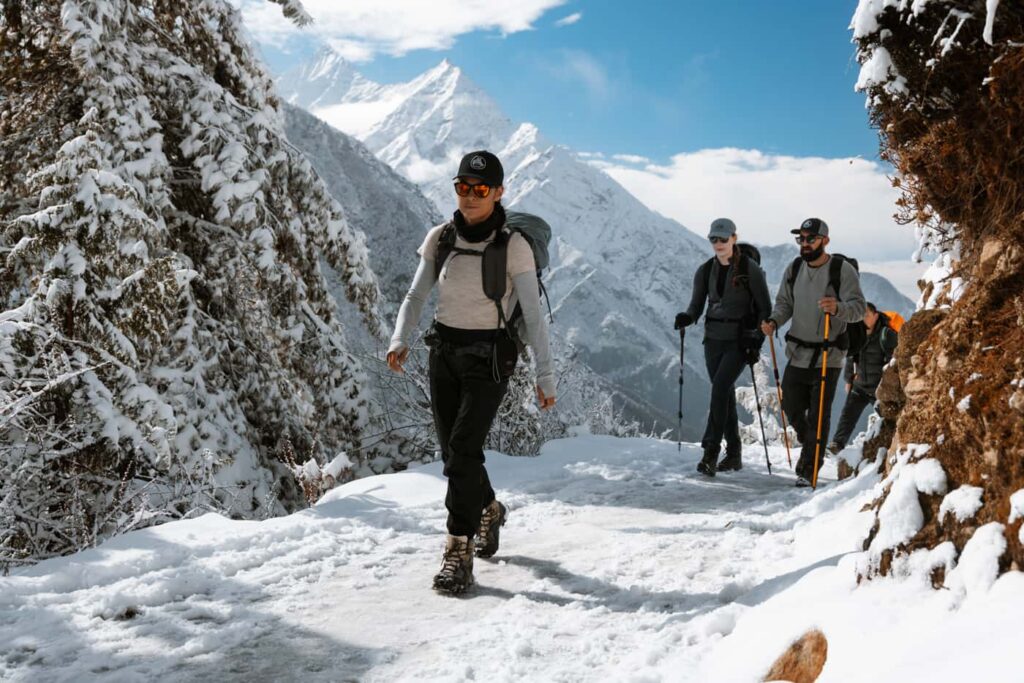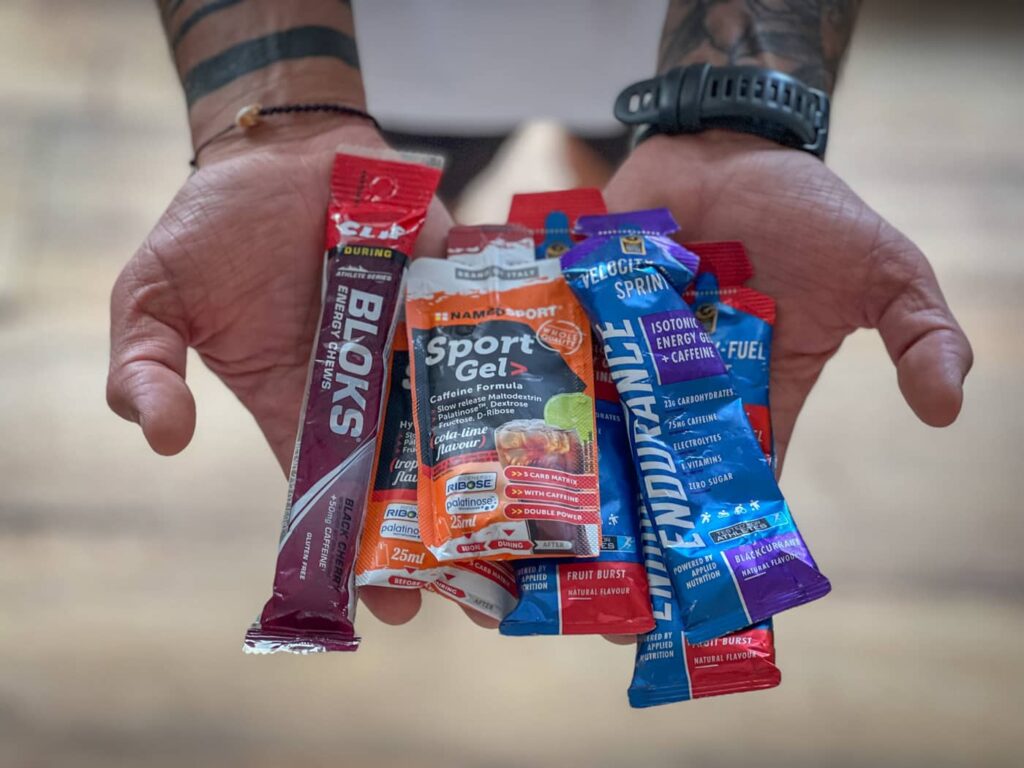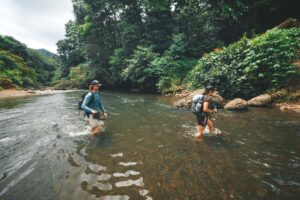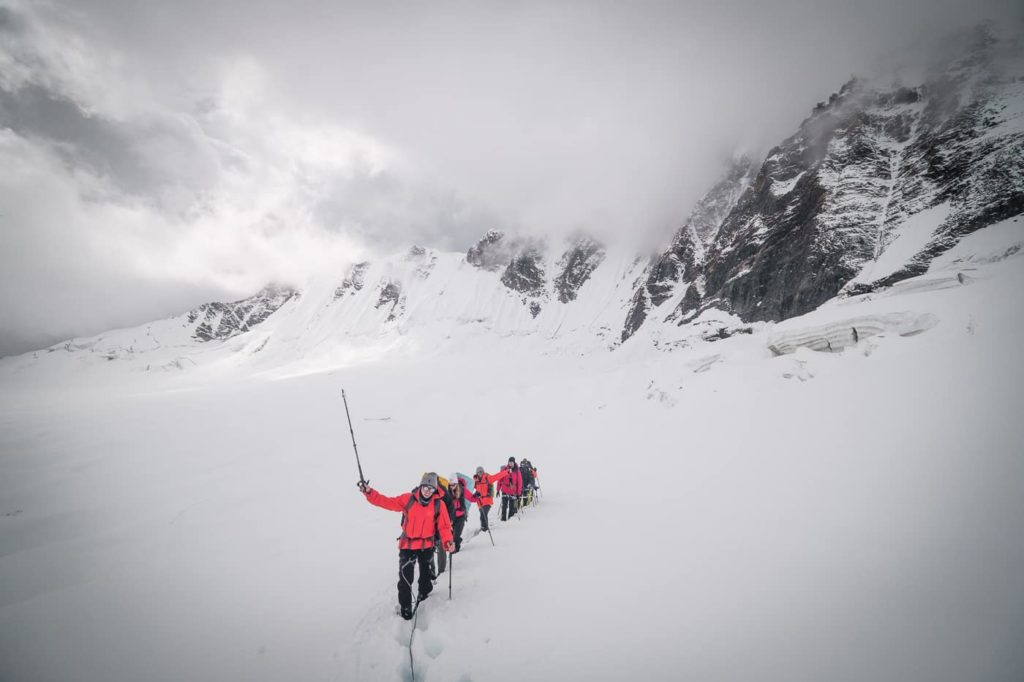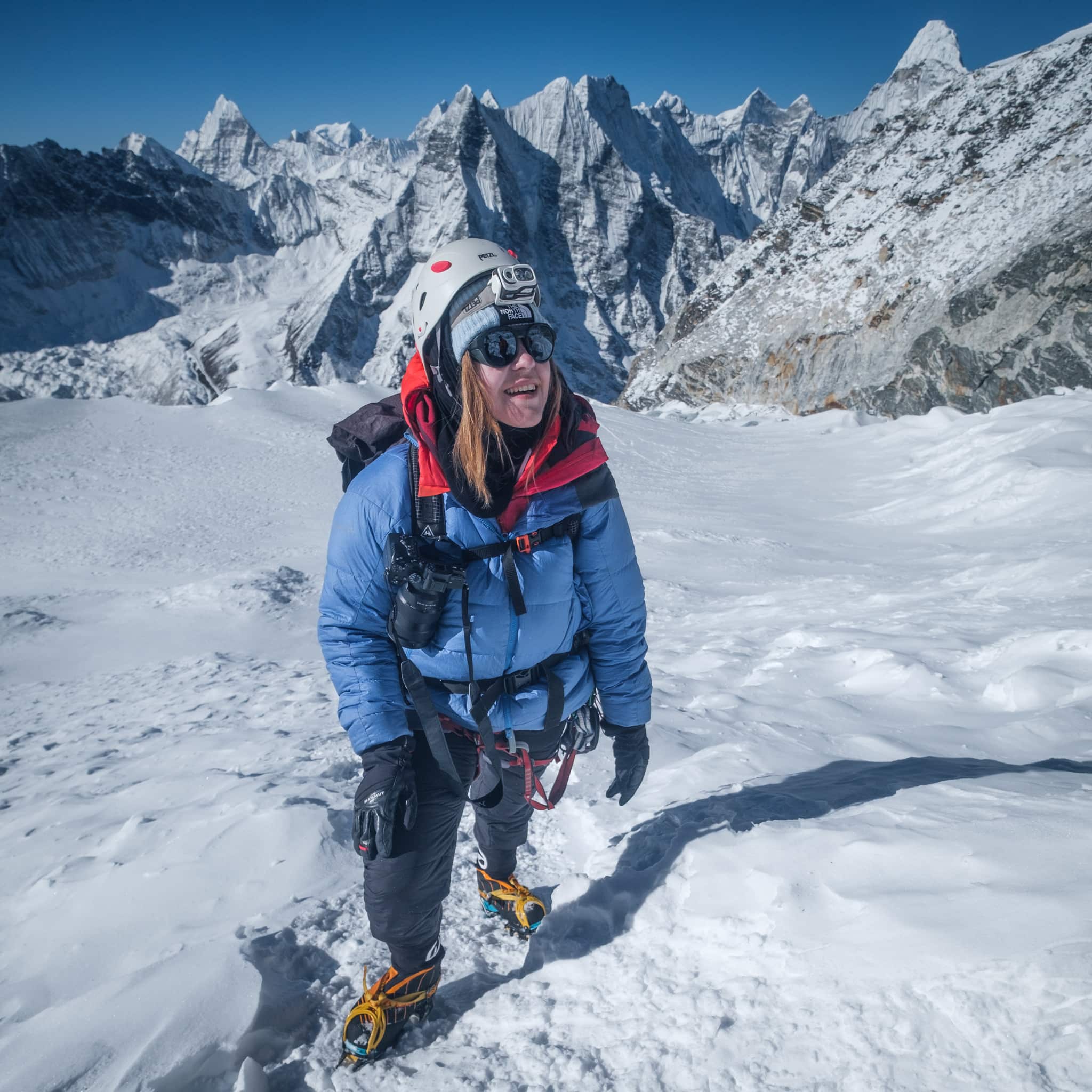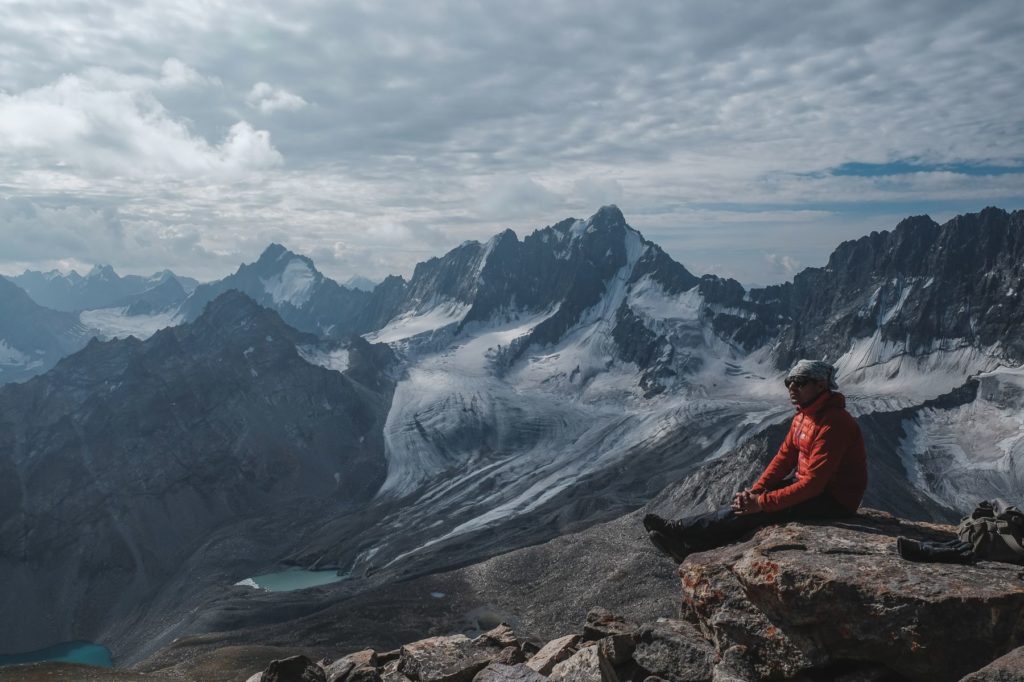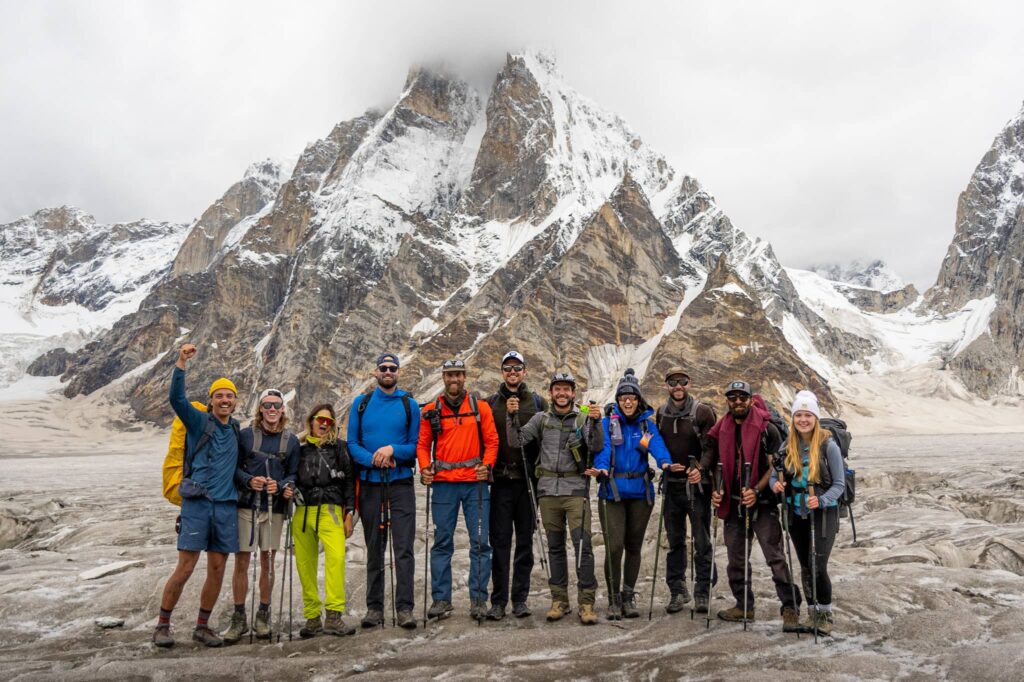Embarking on a thrilling hiking adventure or traveling to exotic destinations like Pakistan, Nepal, or India can be exhilarating, but it’s essential to prioritize your health and well-being while on the road – especially if the trip you are doing requires a degree of physicality.
Proper nutrition plays a vital role in ensuring you have the energy and endurance to conquer those rugged trails and breathtaking landscapes. Below we explore the significance of probiotics for travel and delve into the world of hiking nutrition, equipping you with some basic knowledge to make informed choices for a successful journey.
Backpacking Nutrition: Eating Well on the Trail
When planning for a multi-day hiking trip like the K2 Base Camp or a climb up Island Peak, backpacking nutrition becomes a crucial consideration. A well-balanced diet rich in carbohydrates, proteins, and healthy fats is essential to sustain your energy levels throughout the adventure.
To maintain a steady supply of fuel, opt for lightweight, nutrient-dense snacks/foods such as:
- Dehydrated fruits and vegetables: These lightweight and compact options are packed with essential vitamins and minerals.
- Nuts and seeds: High in healthy fats, proteins, and fiber, they provide long-lasting energy and are easy to carry.
- Whole grain crackers and energy bars: These convenient snacks offer a combination of carbohydrates and proteins to keep you going.
- Nut butter: A jar of nut butter (almond butter would be preferable over peanut butter as it’s more nutrient dense) can be a versatile addition to your backpack, providing both healthy fats and proteins.
- Dried meat or jerky: A protein-packed snack that requires no refrigeration and is perfect for maintaining muscle strength during hikes.
- Probiotic and Vitamin Supplements: Nutrient-rich little packets to give you comprehensive nutrition on the trail. We suggest going with the stuff our staff all love, AG1 Products! Use this link to get a special offer from AG1.
- Instant oatmeal or granola: A quick and nutritious breakfast option to kick-start your day on the trail, it contains plenty of complex carbohydrates and modest amounts of protein too.
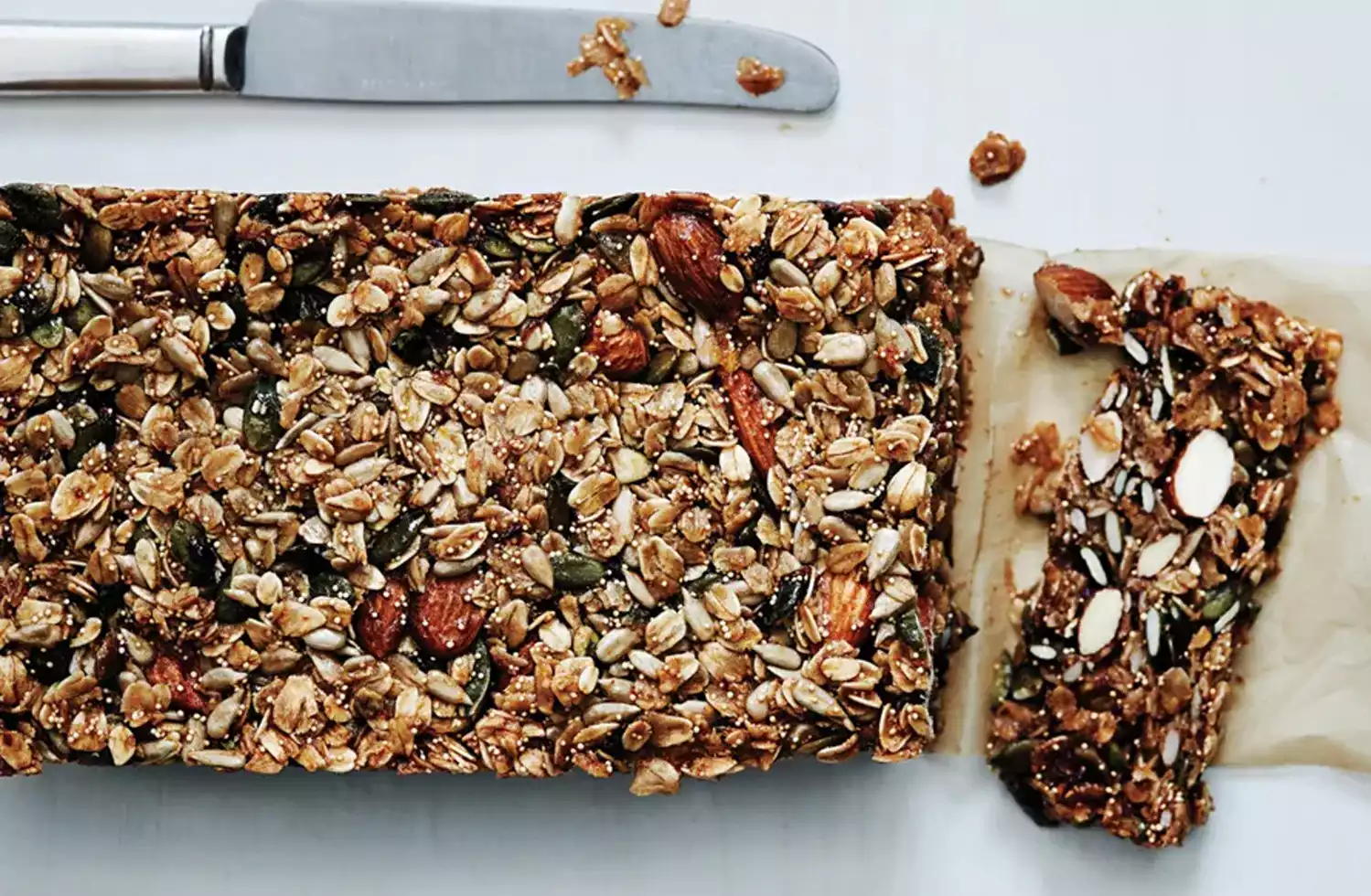
Delhi Belly: Prevention and Management
One common concern for travelers is encountering gastrointestinal issues, often referred to as “Delhi Belly” or traveler’s diarrhea.
This unpleasant condition can put a damper on your adventures and set you back considerably in terms of physical performance on a hike. Here are some preventive measures to keep Delhi Belly at bay:
- Stay hydrated: Drink plenty of water, and avoid tap water in regions where it may be unsafe. Opt for bottled water or use water purification tablets or filters. Filters – or more accurately purifier bottles like a Grayl, are the most preferable, less plastic and less chemicals vs bottles or tablets.
- Be cautious with food choices: Avoid those tasty piles of street meats that have been sitting out in the sun for god knows how long and consume only well-cooked meals – aim for steaming hot too. Peel fruits and vegetables yourself to minimize the risk of contamination.
- Practice good hand hygiene: Wash your hands thoroughly with soap and water before eating or handling food. If soap is unavailable, use a hand sanitizer with at least 90% alcohol content.
- Probiotics for travelers: Consider incorporating probiotic supplements into your travel routine. Probiotics promote a healthy gut microbiome, which can strengthen your immune system and support digestive health. We suggest going with the stuff our staff all love, AG1 Products! Use this link to get a special offer from AG1.
- Use a Grayl Geopress: Drinking contaminated water is one the best ways to get seriously sick on a trip. Even a small drop of unsafe water in your body can cause stomach trouble for days. We always recommend using a Grayl Geopress Bottle to purify any questionable water – on the trail or from the hotel sink when traveling.
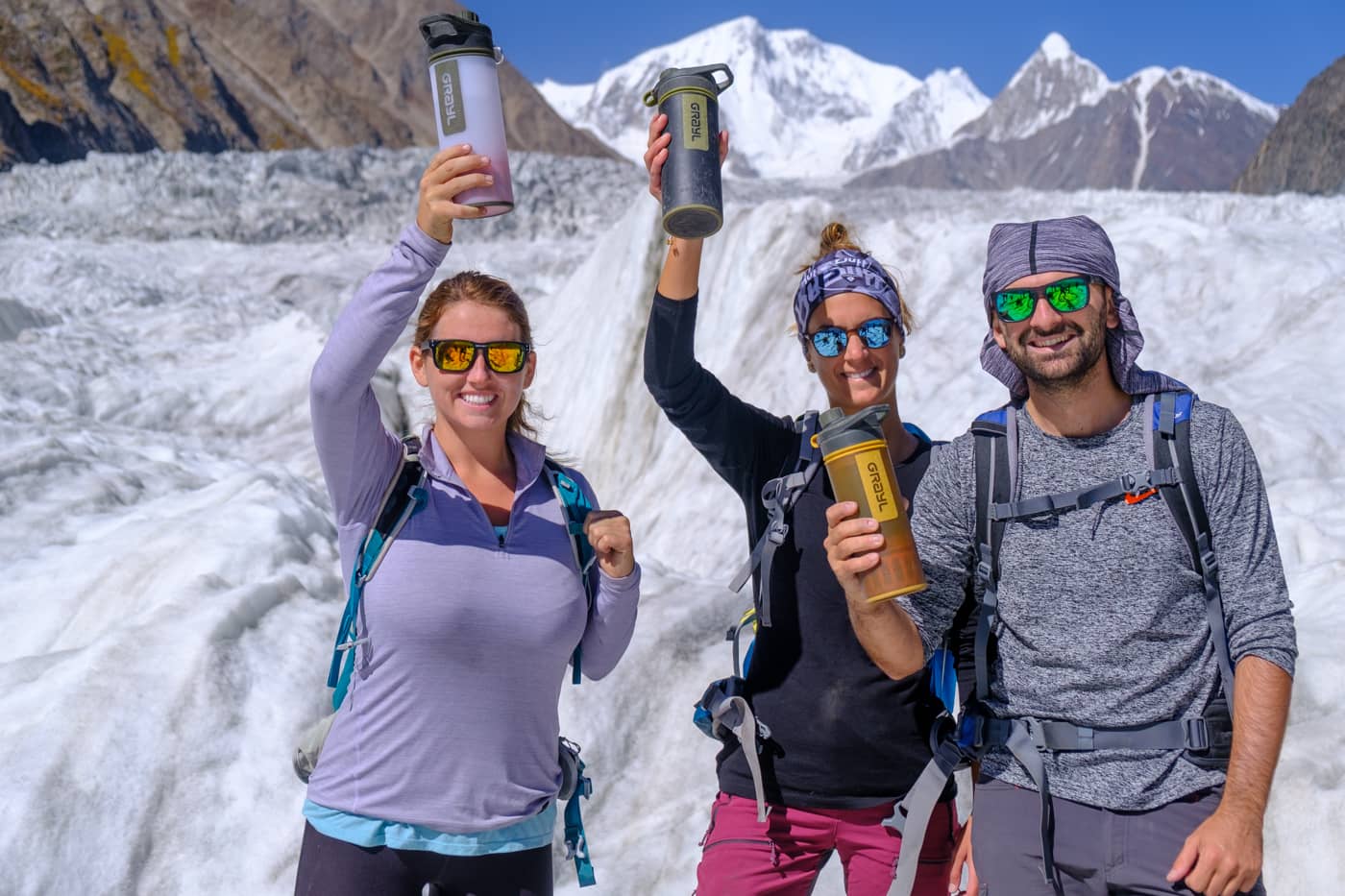
Probiotics for Travel
Probiotics offer a range of benefits for travelers, including improved gastrointestinal health, enhanced immunity, and increased resistance to pathogens… this means a crucial defense to all of those invisible demons hell-bent on ruining your active holiday.
These beneficial bacteria help restore the natural balance of your gut microbiota, which can be disrupted due to changes in diet, stress, or exposure to new environments. Incorporating probiotics into your travel regimen can help reduce the risk of digestive issues.
Best Probiotic for Traveler's Diarrhea
So you have eaten something delicious but questionable, gotten as sick as a dog, and taken antibiotics to curb your suffering and restore you back to health so you can continue on with your trek.
The only problem now is that your gut biome has received the belly equivalent of a nuclear bomb – destroying all of that healthy, good bacteria you had living in there. So now what?
Here is where probiotics have their second value: restorative gut health.
When it comes to combating traveler’s diarrhea and the after-effects of taking antibiotics, not all probiotics are created equal. The most effective strains for preventing and managing this condition include:
- Saccharomyces boulardii: This yeast-based probiotic has been extensively studied and is known for its ability to reduce the duration and severity of diarrhea caused by various pathogens.
- Lactobacillus rhamnosus GG: Another widely researched strain, L. rhamnosus GG, has shown promising results in preventing and treating diarrhea associated with travel.
- Bifidobacterium bifidum: This probiotic strain has demonstrated positive effects on gastrointestinal health and may help alleviate symptoms of traveler’s diarrhea.
Consult with a healthcare professional or pharmacist to determine the best probiotic option for your specific needs and travel plans.
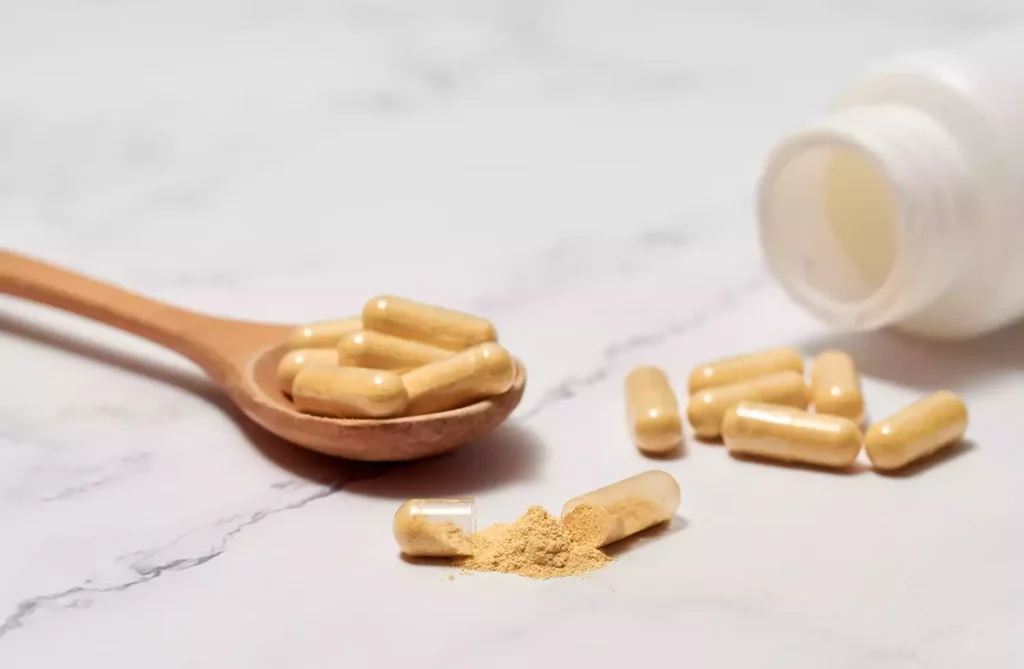
Energy Gels for Hiking: Pros and Cons
Energy gels have gained popularity among hikers and endurance athletes as a convenient source of instant energy.
These portable gel packs are typically high in carbohydrates aka sugar and provide a quick boost during intense physical activity. Consider the following pros and cons when deciding whether to incorporate energy gels into your hiking nutrition plan:
Pros:
- Convenient and lightweight: Energy gels are easy to carry and consume while on the move.
- Rapid absorption: The gel form allows for quick digestion and absorption of carbohydrates, providing an immediate energy boost.
- Precise dosing: Energy gels often come in pre-measured packets, allowing you to control your carbohydrate intake accurately.
Cons:
- Limited nutritional value: Energy gels primarily provide carbohydrates, aka simple sugars, and lack other essential nutrients like proteins, healthy fats, and fiber.
- Artificial ingredients: While they may test pretty damn good, many energy gels contain additives, artificial sweeteners, or high levels of sugar, which may not align with everyone’s dietary preferences.
- Digestive issues: The concentrated sugar content in energy gels can cause gastrointestinal discomfort in some individuals, especially when consumed in excess.
- Trial and error: Consider experimenting with energy gels during your training hikes to assess their compatibility with your digestive system and overall hiking performance.

Long-Distance Hiking Nutrition
For those embarking on long-distance hiking adventures, proper nutrition is vital to sustain endurance and optimize recovery – and also to ensure you are getting the proper rest. Here are some key considerations for long-distance hiking nutrition:
- Caloric balance: Ensure you consume enough calories to meet the increased energy demands of long hikes. An energy deficit will result in weight loss and put added strain on your immune system. Activity trackers like a Garmin, Fitbit,Apple iWatch, or specialized hiking watches can enable you to get an accurate picture on daily energy expenditure.
- Electrolyte replenishment: Sweating during extended hikes leads to electrolyte loss. Consider electrolyte supplements to maintain balance ensuring that you get the full spectrum of electrolytes including; magnesium, chloride, calcium sodium and potassium.
- Protein for recovery: Consuming adequate protein helps repair muscle damage and supports recovery. Include lean meats, fish, beans, and nuts in your meals and consider a protein powder when good sources of protein are lacking.
- Healthy fats: Incorporate sources of healthy fats, such as nuts and seeds to provide sustained energy.
- Hydration: We have already mentioned the importance of hydration but it is worth noting again! Stay hydrated by drinking water regularly, even when you do not feel thirsty or have not been sweating (like in cold temps).
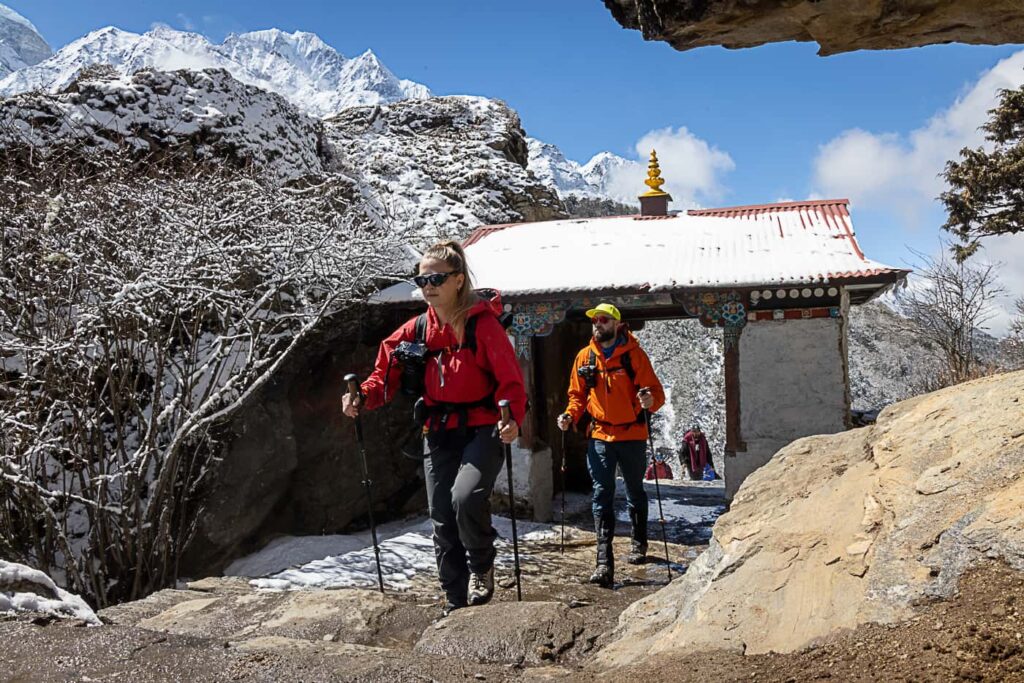
Using a Nutritionist to Prepare for Travel
If you want to take your nutrition game to the next level, hire a professional to ensure you are going about your nutrition program the right way for your age and body type.
Seeking guidance from a nutritionist can help optimize your diet for travel, ensuring you are well-equipped for the physical demands of hiking and exploring.
A nutritionist can provide personalized advice, assess your dietary requirements, and help create balanced diet plans that support your travel goals while taking into account your health history too.
The point is, nutrition advice is a nuanced business and if you have a little extra budget for your trip to put towards an expert to guide you on your nutritional preparation journey – you will find it likely to be 100% worth it.
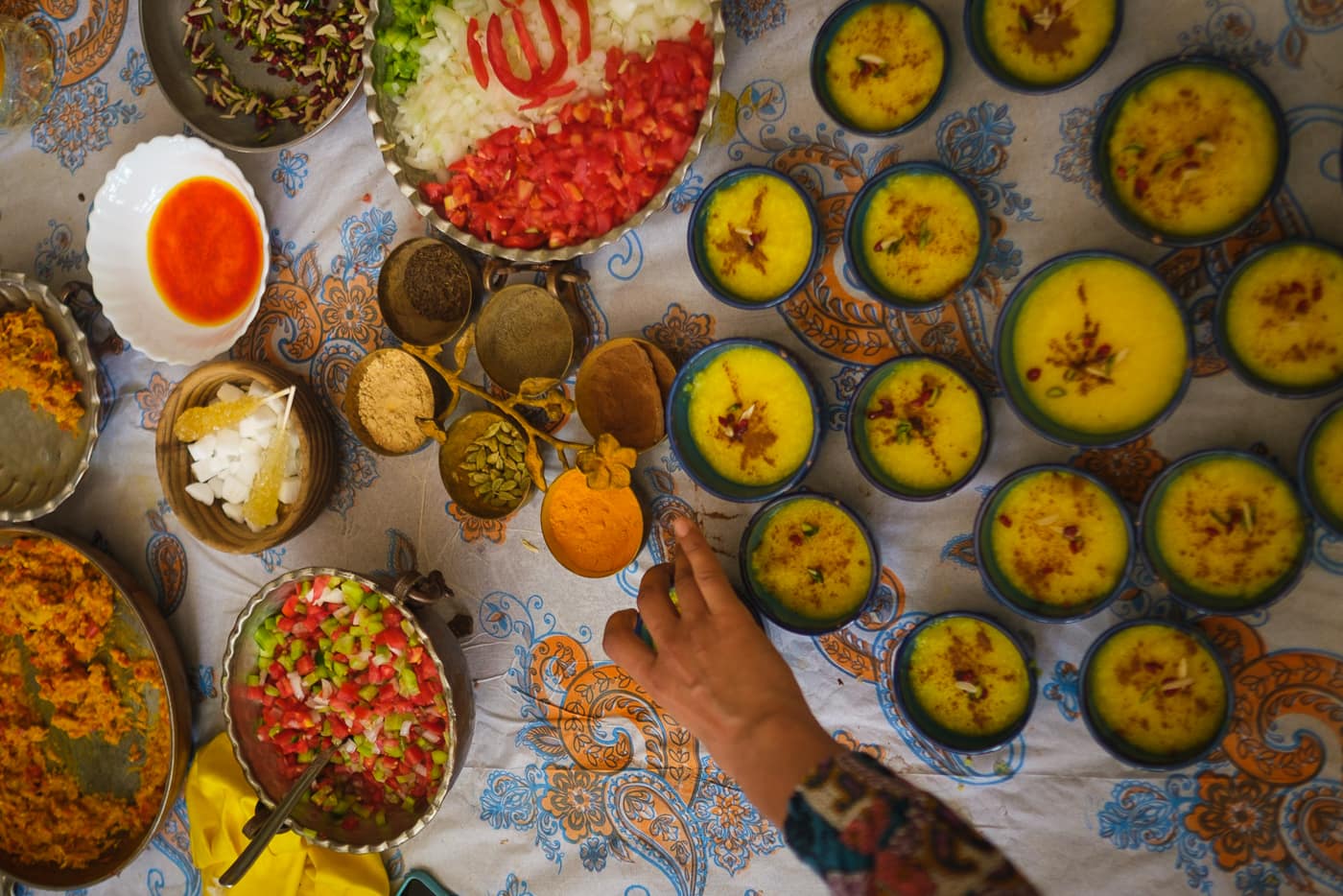
Get Expert Advice from a former Epic Client and Professional Nutritionist
Don’t know where to find a nutritionist who travels, hikes, and climbs mountains? We got you covered…
Because we believe so much in the importance of gut health for preparation and the positive benefits it can have on your trek, we have teamed up with a past client of ours who is a BANT registered nutritionist in the UK.
Mr. Neil has been with us twice on two different trips – once for the K2 Base Camp Trek where he successfully climbed Gondogoro La and once in Nepal where he successfully climbed Island Peak.
Due to his first-hand knowledge of Pakistan and Nepal and the certain belly ailments one might face on this adventure, Neil is an excellent resource when it comes to helping you physically prepare for the K2 Trek, Island Peak Climb, or any trip we offer.
Here are the following services Neil offers:
Custom Epic Nutrition Package for Trekkers and Climbers
– Personalized meal plans and recipes
– Anytime access to Neil via email, sms or WhatsApp to ask questions
If this sounds interesting to you, please reach out to Neil directly to inquire about pricing and more details about his nutrition plans. The plans cater to different budgets based on your needs, etc.
Be sure to mention Epic Expeditions to get our client-privileged rates.
Neil’s Whatsapp: +44 7786 917633
email: hello@neilbridgeman.com
Website: www.neilbridgeman.com/
Wrap Up: Fueling Your Adventure: Probiotics for Travel and Hiking Nutrition
As you prepare to embark on your next big travel adventure, our team of adventure experts strongly recommends that you prioritize your nutrition and digestive health to make the most of your journey.
Incorporate probiotics for travel to support gastrointestinal well-being and consider the best probiotics for travelers’ diarrhea before you start your trip; remember that it is damn near impossible to find these sorts of supplements in Pakistan or Nepal.
There is no one way or tried and true system to prepare for a big trek like the K2 Base Camp – so a balance of proper nutrition and the right physical training that works for your body type will go a long way in making sure you get the most out of your trip with us.
DISCLAIMER: The information provided on this Epic blog is for informational purposes only and should not be used for diagnosis. It is not intended as a substitute for advice from your doctor or other qualified health practitioner.
